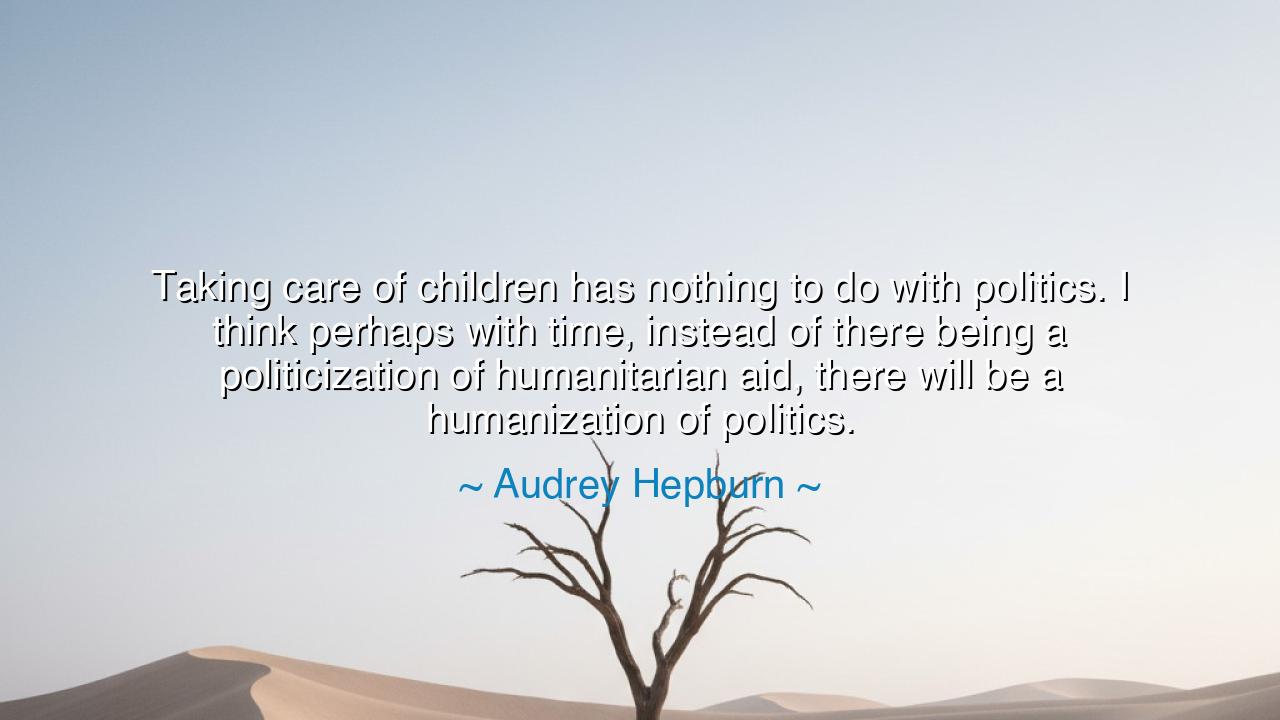
Taking care of children has nothing to do with politics. I think
Taking care of children has nothing to do with politics. I think perhaps with time, instead of there being a politicization of humanitarian aid, there will be a humanization of politics.






The words of Audrey Hepburn shine with the gentleness of a mother and the wisdom of a sage: “Taking care of children has nothing to do with politics. I think perhaps with time, instead of there being a politicization of humanitarian aid, there will be a humanization of politics.” In this vision, she calls for a world where compassion is not a tool of parties or powers, but the very root of governance. The care of children—pure, universal, and necessary—stands apart from ideology, for it belongs to the heart of humanity itself.
Hepburn spoke not only as an actress beloved across the world, but as a woman who knew the wounds of war. As a child in occupied Holland during the Second World War, she suffered hunger and fear, her family enduring the terrors of violence and famine. From this crucible, her heart learned that the first duty of civilization is to protect its children. Thus, when she later became a goodwill ambassador for UNICEF, she carried her own memories into her work, seeking to shield others from the pains she had once endured. Her words were born of experience, not abstraction.
History affirms her truth. When armies marched through ancient cities, when sieges consumed lands, it was always the children who suffered most. Yet, there were rulers like Ashoka the Great of India, who after the carnage of Kalinga renounced conquest and turned instead to mercy, building hospitals and schools. His politics was transformed by humanization, just as Hepburn hoped for—a reminder that true greatness in governance is measured not by territory or power, but by the protection of the most vulnerable.
Her words also rebuke the common tendency of nations to use aid as a weapon, a bargaining tool in the games of diplomacy. When food, medicine, or shelter is withheld until it serves political advantage, the sacred duty to protect life is betrayed. Hepburn insists that compassion must precede calculation, that politics must bow to humanity, not humanity to politics. Only then can statesmanship rise above cynicism and be redeemed by love.
So let the future take this teaching to heart: the measure of a just society is not in its armies, its riches, or its monuments, but in the faces of its children. Where they are fed, sheltered, and taught, there civilization flourishes. Where they are abandoned, no flag, no empire, no ideology can justify the ruin. To humanize politics is to remember always that the purpose of power is service, and the highest service is to protect the innocent.






AAdministratorAdministrator
Welcome, honored guests. Please leave a comment, we will respond soon